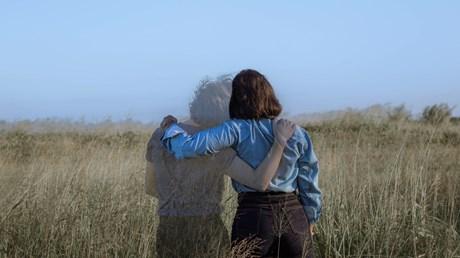Despite Scripture’s warning against communication from beyond the grave, most consider hearing from loved ones to be a comfort in their grief.

Last summer, Heather Beville felt something she hadn’t in a long time: a hug from her sister Jessica, who died at age 30 from cancer.
In a dream, “I hugged her and I could feel her, even though I knew in my logic that she was dead,” she said. She immediately texted a group chat with her close friends, including her husband and her pastor, to tell them about it.
Like fellow Christians, Beville is sure that death is not the end. But she’s also among a significant number who say they have continued to experience visits from deceased loved ones here on earth.
In a recent Pew Research Center survey, 42 percent of self-identified evangelicals said they had been visited by a loved one who had passed away. Rates were even higher among Catholics and Black Protestants, two-thirds of whom reported such experiences.
Interactions with the dead fall into a precarious supernatural space. Staunch secularists will say they’re impossible and must be made up. Bible-believing Christians may be wary of the spiritual implications of calling on ghosts from beyond. Yet more than half of Americans believe a dead family member has come to them in a dream or some other form.
The survey didn’t clarify how people processed these interactions—whether they thought they were mystical or believed they could have had natural causes. Those who responded that loved ones visited them in a dream, for example, included those who may believe their loved ones were trying to send messages to them as well as those who might have simply dreamt about a favorite memory with their family member.
Experiencing these interactions is correlated with some sense of religious faith. Sixty-three percent of people with ...
from Christianity Today Magazine
Umn ministry


.gif)

.gif)
.gif)
